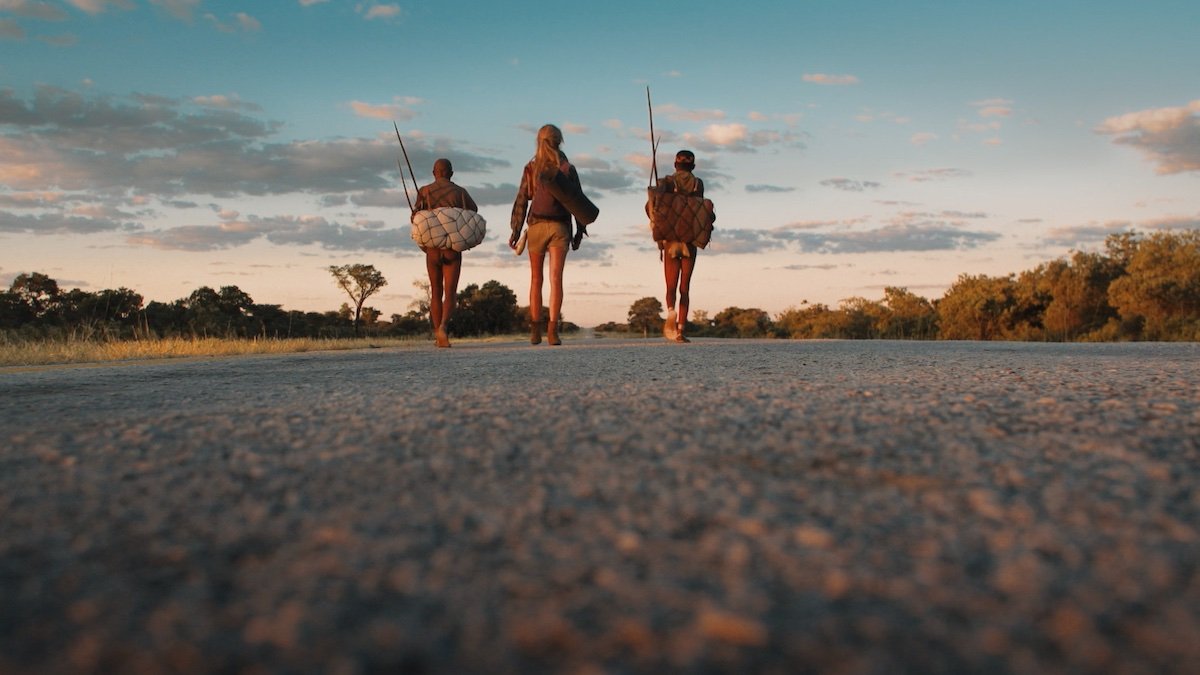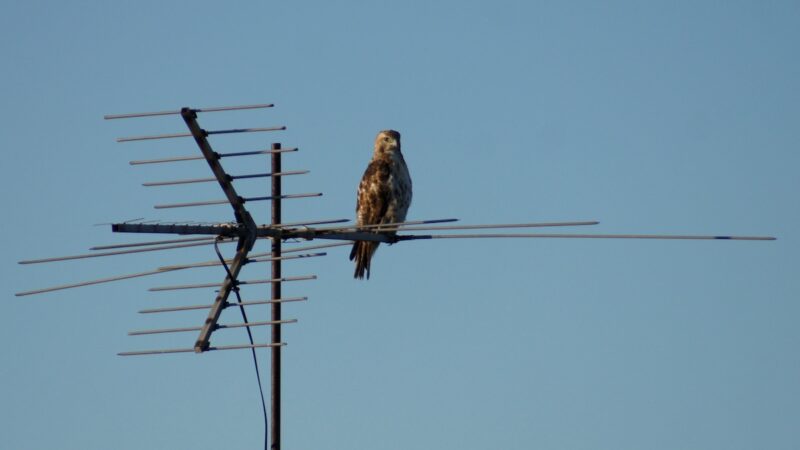‘The Long Walk’ Aims to Take You Where the Wi-Fi is Weak but the Connection is Strong

The new documentary The Long Walk follows Norwegian supermodel-turned-activist Aleksandra Orbeck-Nilssen as she treks across the African country of Namibia with two Ju/’hoansi bushmen. In the film, Orbeck-Nilssen serves as a sort of translator for the indigenous people and their traditional ways. While they travel by foot, sleep outdoors, and hunt and forage for food, their straightforward plans are often complicated by the modern world.
Videos by Outdoors
In an interview with Outdoors.com, Orbeck-Nilssen explained that the idea for the film was born out of another project. She said that she and her two co-stars — Cui Gcaq’o and Kamache Kun Jonnas — had planned to make the nearly 1,500-kilometer hike for fun before French director Pierre Stine learned about it.
“He’s like, ‘My God. I hope someone is capturing this,’ and I said, ‘No.’ I was actually just planning to bring a solar panel and a GoPro,” she said, adding that she would only agree to being documented if Stine agreed to keep his distance. She told him: “You can come, but you can’t help us. You have to stay away from us as much as possible and try to be a fly on the wall.” They left about a month later.
At the beginning of the film, Orbeck-Nilssen narrates, saying that she, Cui, and Kamache all wanted to go on the journey for a sense of “meaning.” At times, the film comes off as an introduction to Ju/’hoansi culture, like when the elder Cui guides Kamache through an antelope hunt with a bow and poison-tipped arrow, and when they kill a tortoise and eat it. But it also shows how the modern world limits their nomadic lifestyle. In the film, Orbeck-Nilssen notes that 80% of Namibia’s land is privately owned, so they have to ask permission to hunt and cross the property or find ways around it.
The Ju/’hoansi is one of the oldest cultures in the world. Some anthropologists say the 200,000-year-old culture thrived and remained unchanged until the people were forced to confront modern economics and politics.
Orbeck-Nilssen, who runs a non-profit called Nanofasa Conservation Trust to help preserve indigenous cultures, said that the Namibian government has been forcing the Ju/’hoansi to give up their ancestral ways by limiting them to certain parts of the country and regulating their hunting. With their lifestyle systemically disrupted, she argued that the Ju/’hoansi are forced to rely on modest government handouts. She also argued that lawmakers are doing this to boost tourism and trophy hunting.
“Culture is wealth. Without culture, we have no one left to protect nature, and without culture for the Ju/’hoansi, they’re just another poor person in Africa. Their knowledge and their ancient wisdom are their wealth. That’s what sets them aside. That’s what brings them into the world as an asset,” she said, adding that indigenous people both connect and protect nature in ways others don’t.
With the film, Orbeck-Nilssen said she hopes to not only inspire the next generation to care about cultural and environmental issues but also to bring people together. “The Long Walk is to take people where the Wi-Fi is weak but the connection is strong enough to make a difference,” she said.
Watch The Long Walk on Amazon Prime or Apple TV.







